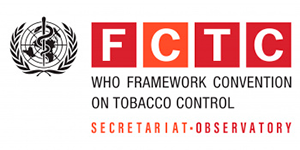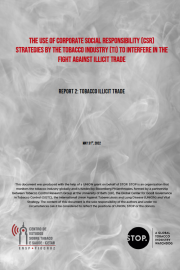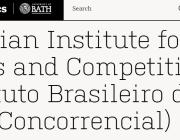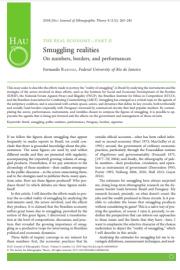
'''Employment generation, tax contributions and other economic indicators are often employed by the tobacco industry to supposedly demonstrate its contributions to a country's economy. But the figures provided by the companies not only exaggerate the economic importance of this industry but also ignore the health, social, environmental and health costs entailed by tobacco and its derivatives."1.
The tobacco industry strives to interfere in the political process. It exaggerates its own contribution, expressed in terms of job creation (direct and indirect), tax contributions and other economic indicators, to the economy of a country, region, province or municipality. Economic information is not only sensational, but also ignores the negative impact of tobacco use, including the evasion of public resources used to treat millions of people who develop tobacco-associated diseases.
It tries to oppose tobacco control measures on the grounds that such measures would negatively impact the generation and maintenance of jobs and, consequently, the country's economy. With this argument, the industry creates "lobbies" against tax increases on tobacco products, predicting catastrophic consequences for its business. In fact, evidence shows that, at least so far, job losses in the tobacco sector have little to do with stricter tobacco control measures. A recent post2 highlights how the tobacco industry lobbies against taxation and tariffs on cigarettes on the pretext that reduced production costs would preserve jobs. In addition to obtaining tax advantages, the industry also reorganized and consolidated its production processes, leading to job losses in the sector. Indeed, even if their demands are met, it would not cause any species familiar with anti-smoking to threaten to close a factory or department and move elsewhere, despite their claims of social commitment and responsibility.
Economic studies reveal that industry claims about potential job losses and other economic losses resulting from stricter tobacco controls are exaggerated; in fact, such losses are negligible. If consumption falls, job losses in tobacco-dependent sectors are more than offset by increased employment in other sectors that do not harm the overall economy. 3.
October 31, 2018: FGV Projetos carried out the “Study of the Socio-Economic Effects of Regulation, by Anvisa, of the matters dealt with in public consultations nº 112 and 117, of 2010”
FGV Projetos carried out the “Study of the Socioeconomic Effects of Regulation, by Anvisa, of the subjects that deal with public consultations No. the most attractive smuggling product, relates the economic and social consequences of changing the smoker's preference. The study aims to analyze the potential economic and social effects resulting from the implementation of new restrictions on packaging and communication materials for cigarette brands, as well as the ban on their display at the point of sale and the use of ingredients in their manufacture, foreseen in Public Consultations nº 112 and 117, of 2010, published by ANVISA.
In this regard also read:
- Countering Critics
- 1. WORLD HEALTH ORGANIZATION. World no tobacco day 2012: tobacco industry interference. [s.l.], 2012. Disponível em: http://www.who.int/tobacco/wntd/2012/industry_interference.pdf. Acesso em: 26 jan. 2017. Documento integral em PDF: https://drive.google.com/file/d/0B4ivOg72nORyN2dBV1F5eldMQ1E/view?usp=sh...
- 2. HOLDEN, Chris; LEE, Kelley. 'A major loobying effort to change and unify the excise structure in six Central American countries': how British American Tobacco influenced tax and tariff rates in the Central American Common Market. Global Health, v. 7, n. 1, p. 15, 2011. Disponível em: http://www.globalizationandhealth.com/content/7/1/15 http://www.globalizationandhealth.com/content/7/1/15. Acesso em: 19 nov. 2014. Documento integral em PDF: https://drive.google.com/file/d/0B0HvJttn0WXDSk1tMzd3c05tOXM/view?usp=sh....
- 3. WORLD HEALTH ORGANIZATION. Health and economic impact of tobacco taxation. In: ______. Effectiveness of tax and price policies for tobacco control. International Agency for Research on Cancer/WHO, França, 2011. Disponível em: http://www.iarc.fr/en/publications/pdfs-online/prev/handbook14/handbook1... http://www.iarc.fr/en/publications/pdfs-online/prev/handbook14/handbook1.... Acesso em: 19 nov. 2014. Documento integral em PDF: https://drive.google.com/file/d/0B0HvJttn0WXDbEV4SU43WExJclk/view?usp=sh....




